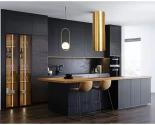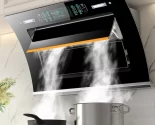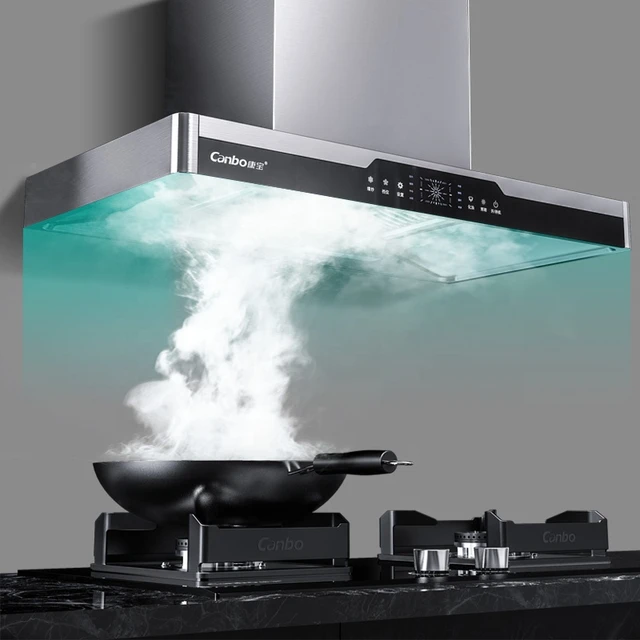
Do you need an electrician to install a range hood?
Introduction
Range hoods play a vital role in maintaining a clean and odor-free kitchen by effectively removing smoke, steam, and cooking odors from the air. When considering installing a range hood, homeowners often wonder if they need the expertise of an electrician. While it is possible for homeowners to install a range hood themselves, certain electrical considerations and safety measures must be taken into account. In this guide, we will explore the factors involved in installing a range hood and provide insights into whether the expertise of an electrician is necessary for a safe and successful installation.
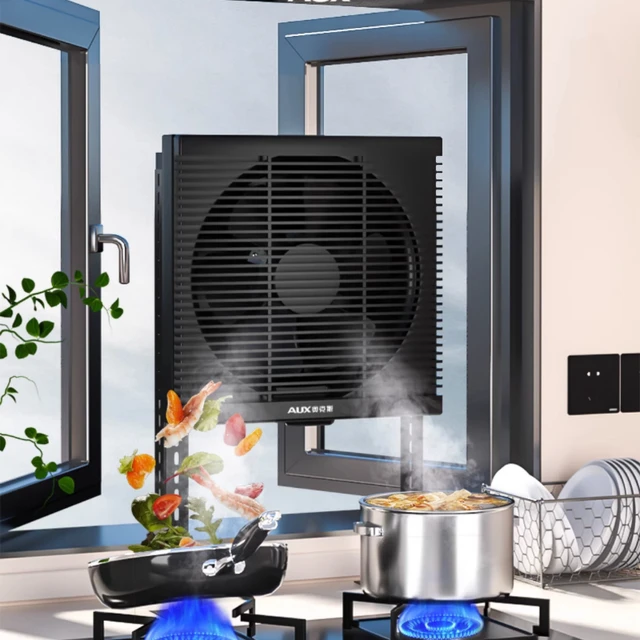
Do you need an electrician to install a range hood?
Electrical Connections
1.1. Power Supply
Range hoods require a dedicated electrical circuit to ensure safe and efficient operation. A typical residential range hood operates on a 120-volt circuit, while larger and more powerful models may require a 240-volt circuit. Determining the appropriate circuit requirements and ensuring proper wiring connections is crucial for a safe installation.
1.2. Electrical Wiring
Installing a range hood often involves connecting the hood to the electrical wiring within the kitchen. This process requires knowledge of electrical codes, wire gauge requirements, and proper grounding techniques. Electricians are well-versed in these regulations and can ensure that the wiring is done correctly and in compliance with safety standards.
1.3. Circuit Breaker Installation
In some cases, installing a range hood may require the installation of a dedicated circuit breaker in the electrical panel. This task involves working with the electrical panel and connecting the circuit breaker to the appropriate wiring. Due to the complexities involved, it is advisable to engage the services of a licensed electrician to safely and accurately carry out this task.
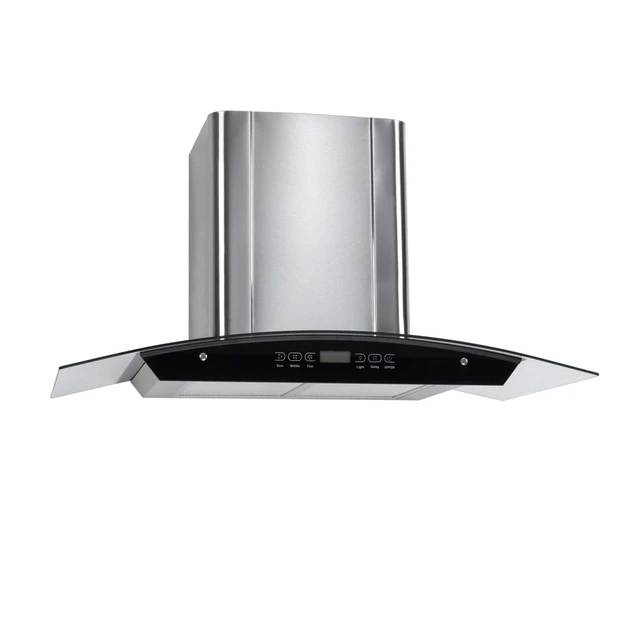
Safety Considerations
2.1. Avoiding Electrical Hazards
Improper electrical work can pose significant safety hazards, including electrical shocks, fires, or damage to the range hood itself. Electricians have the knowledge and expertise to handle electrical connections safely, reducing the risk of accidents or electrical malfunctions.
2.2. Ensuring Proper Ventilation and Exhaust
Range hoods not only require electrical connections but also need to be properly vented and exhaust to the outside of the home. An experienced electrician can ensure that the ventilation system is correctly installed, enabling the range hood to effectively filter and expel cooking pollutants. This proper installation helps maintain indoor air quality and prevents the accumulation of grease or odors in the kitchen.
Building Codes and Permits
3.1. Compliance with Building Regulations
Installing a range hood may involve adherence to local building codes and regulations. These codes often specify requirements for electrical connections, ventilation, and clearance distances from combustible materials. Electricians are familiar with these codes and can ensure that the installation meets all necessary requirements to avoid potential penalties or safety hazards.
3.2. Permitting Process
Certain municipalities require permits for range hood installations, particularly when electrical work is involved. An electrician can guide homeowners through the permitting process, ensuring that all required documentation and inspections are completed in compliance with local building regulations. Engaging an electrician from the start can help streamline this process and avoid potential issues or delays.
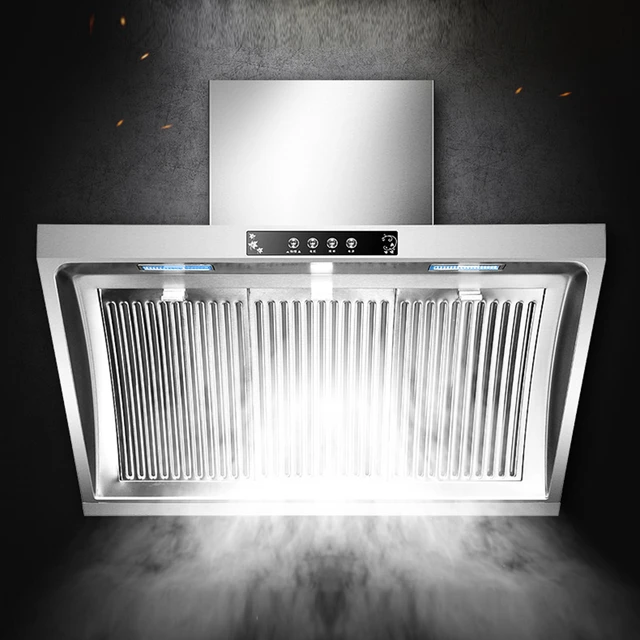
Expertise and Experience
4.1. Electrical Knowledge and Skill
Electricians undergo rigorous training and possess the necessary knowledge and skill to safely handle electrical installations. They are familiar with various wiring techniques, electrical components, and safety protocols, making them well-equipped to handle the complexities of installing a range hood.
4.2. Troubleshooting and Problem-Solving
In some cases, installing a range hood may require troubleshooting electrical issues or resolving unforeseen challenges. Electricians have the expertise to diagnose and resolve electrical problems effectively. Their experience and problem-solving abilities ensure that any issues that arise during the installation process are addressed promptly and efficiently.
DIY Considerations
5.1. Technical Competence
Homeowners with a strong background in electrical work may consider installing a range hood themselves. However, it is essential to assess one’s technical competence and knowledge of electrical systems. If unfamiliar with electrical connections or lacking experience in electrical work, it is advisable to engage an electrician to avoid potential safety hazards or damage to electrical components.
5.2. Time and Effort
Installing a range hood can be a time-consuming task, especially for those without experience in electrical work. Homeowners need to consider the time and effort required to complete the installation properly. Hiring an electrician allows homeowners to focus on other aspects of kitchen renovation or household tasks while ensuring a safe and efficient installation.
5.3. Warranty Considerations
It is crucial to be aware of any warranty restrictions associated with self-installation. Some range hood manufacturers require professional installation by a licensed electrician to ensure the validity of the warranty. Engaging an electrician for the installation ensures compliance with warranty requirements and protects the homeowner’s investment.
Seeking Professional Assistance
6.1. Peace of Mind
Enlisting the services of a licensed electrician provides homeowners with peace of mind, knowing that the electrical connections are handled by a qualified professional. This not only ensures safety but also guarantees that the range hood functions optimally, enhancing its longevity and performance.
6.2. Compliance with Insurance Policies
Some insurance policies require professional installation for electrical modifications or additions. By engaging an electrician for the installation, homeowners can ensure compliance with insurance requirements, avoiding potential issues in the event of a claim related to the range hood or electrical work.
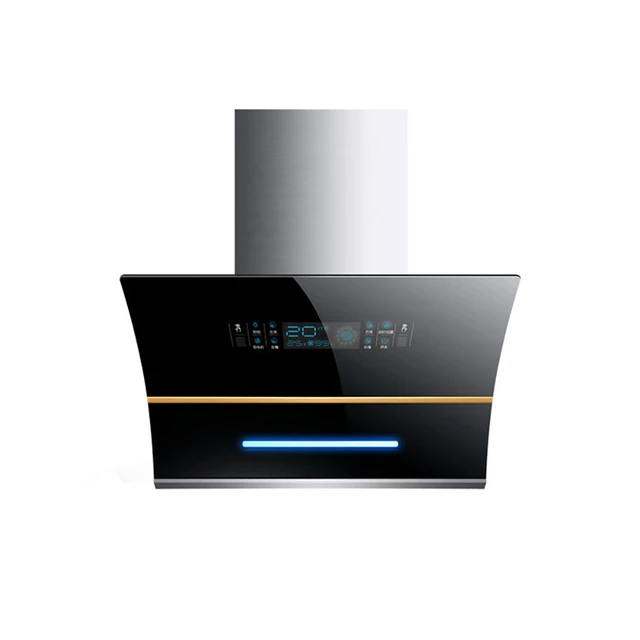
Hiring an Electrician: Factors to Consider
7.1. Licensing and Insurance
When hiring an electrician for range hood installation, it is crucial to verify their licensing and insurance status. A licensed electrician demonstrates that they have met the necessary requirements and undergone the required training. Additionally, insurance coverage provides protection for both the homeowner and the electrician in the event of any unforeseen accidents or damages during the installation process.
7.2. Reputation and Experience
Consider hiring an electrician with a solid reputation and a proven track record in electrical work. Reading reviews, asking for recommendations from trusted sources, or conducting interviews can help gauge an electrician’s experience and professionalism. An experienced electrician who specializes in appliance installations will likely have extensive knowledge and expertise in handling range hoods.
7.3. Cost and Budget
Obtain multiple quotes from different electricians to compare costs and ensure they align with your budget. It is important to strike a balance between affordability and quality of work. Remember that hiring a licensed electrician may incur additional costs, but it provides peace of mind and guarantees a professional installation.
7.4. Clear Communication and Expectations
Prior to hiring an electrician, have a clear understanding of the project scope, timeline, and any specific requirements or preferences you have for the range hood installation. Effective communication will help ensure that both parties are on the same page and that the electrician can meet your expectations.
7.5. Obtaining a Written Contract or Agreement
Once you have selected an electrician, it is advisable to obtain a written contract or agreement that outlines the project details, cost, timeline, and any warranties or guarantees provided. This document protects both parties, providing clarity and accountability throughout the installation process.
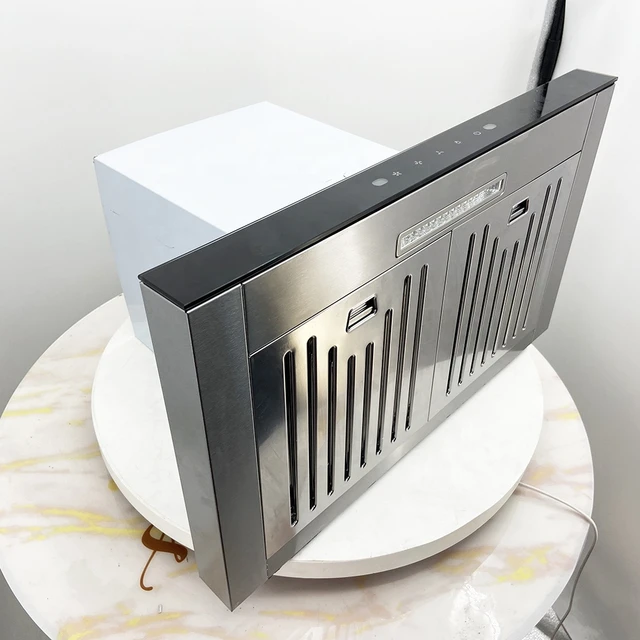
Conclusion
While it is possible for homeowners to install a range hood themselves, the complexities of electrical connections, safety considerations, building codes, and technical expertise involved make it advisable to engage the services of a licensed electrician. Electricians possess the knowledge, skill, and experience necessary to ensure a safe and compliant installation. By enlisting professional assistance, homeowners can enjoy peace of mind, save time and effort, and maximize the performance and longevity of their range hoods. Considering the electrical complexities and potential safety hazards involved, hiring an electrician is a wise investment when installing a range hood in the home.





